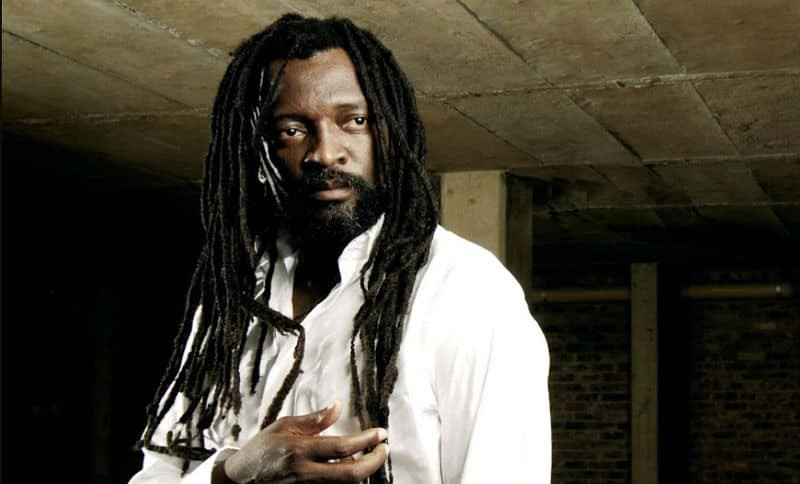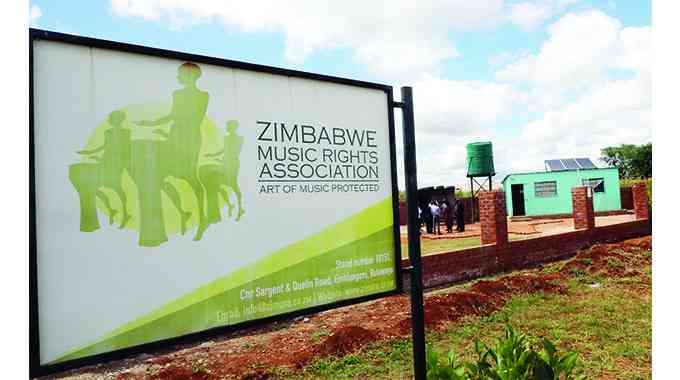
REINCARNATION in its strictest sense is the philosophical belief that the soul or spirit, after biological death, begins a new life in a new body that may be spiritual depending on the moral quality of the previous life's actions.
In Zimbabwe’s music industry, sons and daughters of departed musicians such as Peter Moyo,, Elijah Madzikatire, Selmor Mtukudzi, Tendai Chimombe, Simba, Morgan and Tendai Dembo, Biggie Tembo Junior, Simba, Knowledge Chibadura and many others have not quite lived up to the dizzy heights their superstar parents reached during their careers.
We cannot therefore say that the above- named children have in a sense created a new life of their parents by bringing in the songs their fathers used to sing such as Simbimbino by Biggie Tembo Junior.
The music industry is a very important industry in society. This is because music appeals to many individuals through different means such as consoling of the heart when a person is going through trying times. Also, there is the use of music to spread various pressing issues in society.
Although Lucky Dube was born before Peter Tosh died, it seems Dube’s life was a recreation or reincarnation of his reggae hero, Peter Tosh. Lucky Dube, in a sense became Peter Tosh’s new life after the death of the latter artist in 1987.
Both Peter Tosh and Lucky Dube are dead now but the similarities in the lives they lived are amazing. Apart from the simple facts that they were both reggae musicians who wore dreadlocks and grew up in the countryside, there are many other more serious coincidences. They both died from gunshot wounds.
Below are brief backgrounds of these two mystical reggae legends:
Peter Tosh aka Winston Hubert McIntosh was a Jamaican reggae musician and Rastafarian. Along with Bob Marley and Bunny Wailer, he was one of the core members of the band the Wailers, after which he established himself as a successful solo artist and a promoter of Rastafari.
- In the groove: Another one of Bob Marley’s Wailers dead!
- In The Groove: Was Lucky Dube the reicarnation of Peter Tosh?
- In the groove: Our artistes who art in heaven
- Was Peter Tosh’s radicalism a blessing or a curse?
Keep Reading
Mr. Tosh was born on October 9, 1944, in Westmoreland, Jamaica.
He died on September 11, 1987 in Kingston, Jamaica.
Tosh had several children who included Andrew, Jawara, Aldrina, Niambe, Tobi and Steve. He was born from a single mother.
However although he was legally married to Andrea Marlene Brown, they never had any children together. His children came from other relationships.
Peter Tosh, a founding member of the Wailers, a reggae group that helped to popularize the vibrant Jamaican music style internationally, was killed at his home at the age of 42 after an attack which appeared to have been a robbery attempt. Three armed men arrived on motorcycles at Mr. Tosh's home in St. Andrew, a suburb of Kingston, entered the house at about 8:30 P.M. and shot the seven people present after they refused to give up their money. A police detective said that Mr. Tosh had just returned from the United States and that the robbers apparently thought he had a large amount of cash with him.
A baritone, Peter Tosh was perhaps best known internationally for collaborating with Mick Jagger of the Rolling Stones in the Smokey Robinson song You Got to Walk and Don't Look Back.
In the lyrics of his songs, he often condemned injustice and poverty and praised the Rastafarians, a Jamaica-based religious sect. He was nominated for a Grammy award in 1985 for best reggae recording for Captured Live.
Like other Rastafarians, Mr. Tosh advocated smoking marijuana. He recorded the album and single Legalize It in 1976 and often smoked huge marijuana joints, called spliffs, on stage.
In 1978, before a crowd of 30,000 in Kingston, which included Prime Minister Michael Manley, Mr. Tosh smoked a spliff and berated Mr. Manley for 30 minutes for refusing to legalize ganja, as marijuana is known in Jamaica.
Mr. Tosh had several run-ins with the police and was jailed for possessing marijuana in the mid-1960's. In early 1975, he wrote the anti-police song Mark of the Beast, which was banned from Jamaican radio.
In the time Mr. Tosh was with the Wailers, the group had a string of hits including Stir It Up, I Shot the Sheriff and Get Up, Stand Up. Stand Up For Your Rights.
Many of the Wailers' songs were highly political.
Lucky Philip Dube on the other hand, was a South African reggae musician and Rastafarian. His record sales across the world earned him the Best- Selling African Musician prize at the 1996 World Music Awards. In his lyrics, like Peter Tosh in Jamaica, he condemned slavery, poverty and injustice. He also promoted Rastafarianism. Dube discussed issues affecting South Africans and Africans in general to a global audience.
Lucky Dube, aged 42 was killed in an apparent car-jacking attempt.
The renowned Reggae musician was shot by three gunmen as he dropped off his son in the Rosettenville suburb of Johannesburg.
Lucky Dube was born on August 3, 1964, in Ermelo, South Africa exactly 20 years after Peter Tosh’s birth.
He died on October 18, 2007, exactly 20 years after the death of Peter Tosh.
Among his children were: Nkulee and Thokozani.
He was married to Zanele Mdluli.
Like Peter Tosh, he was born from a single mother, Sarah Dube.
Drawing inspiration from Peter Tosh, Lucky Dube felt the socio-political messages associated with Jamaican reggae were relevant to a South African audience in an institutionally racist society. Born in 1964 to an impoverished family in northeastern Mpumalanga Province, Lucky Dube began his music career at the age of 17 and released his first album at the age of 18 years.
After starting his career as a Mbaqanga artist, he decided to try a new musical genre, reggae, and in 1984, released Rastas Never Die. The record sold poorly—around 4,000 units—in comparison to the 30,000 units his mbaqanga records would sell. Keen to suppress anti-apartheid activism, the regime banned the album in 1985, because of its critical lyrics, such as in the song War and Crime just like the Jamaican regime had banned Peter Tosh’s Mark Of The Beast from airplay in Jamaica.
Dube was not discouraged, however, and continued to perform the reggae tracks live and wrote and produced a second reggae album, Think About the Children, in 1985. It achieved Platinum Sales status and established Dube as a popular reggae artist in South Africa, in addition to attracting attention outside his homeland.
It looks like both Peter Tosh and Lucky Dube were destined in the same direction. Or is it simply a coincidence that their lives followed more or less the same patterns?
The coincidences between Peter Tosh & Lucky Dube are quite interesting. Here are some of them:
- Both Peter Tosh and Lucky Dube were born from single mothers.
- Both were raised by their mothers' close relatives and not by their biological parents. Both spent their early life in the countryside: Peter Tosh in Westmoreland, Jamaica and Lucky Dube in Ermelo, Mpumalanga Province, South Africa.
- Both kicked off their music careers at 17 years old.
- Lucky Dube’s first Reggae album, Rastas Never Die, was banned by the apartheid government in the mid-1980s. In early 1975, Peter Tosh’s anti-police song Mark of the Beast, was also banned from Jamaican radio.
- It was also by coincidence that both had an active career of 26 years and that both died in the capital cities of Johannesburg, South Africa and Kingston, Jamaica, aged 42.
- Both were shot and died from results of a suspected robbery gone wrong.
- Both died at around 8:03 at night.
- The death of Lucky Dube and the death of Peter Tosh, was from an attack by 3-man gangs.
- Both had similar singing styles and made revolutionary music as evidenced in the songs Get Up Stand Up For your Rights and Legalise Marijuana by Peter Tosh and Prisoner and Different Colours/One People by Lucky Dube.
- It is also worth noting that Lucky Dube was born in 1964, 20 years after Peter Tosh was born in 1944 and he died in 2007, 20 years after Peter Tosh passed away in1987.
Was Lucky Dube a coincidence or he was the reincarnation of Peter Tosh? I leave you to work it out.
- Feedback: [email protected]











